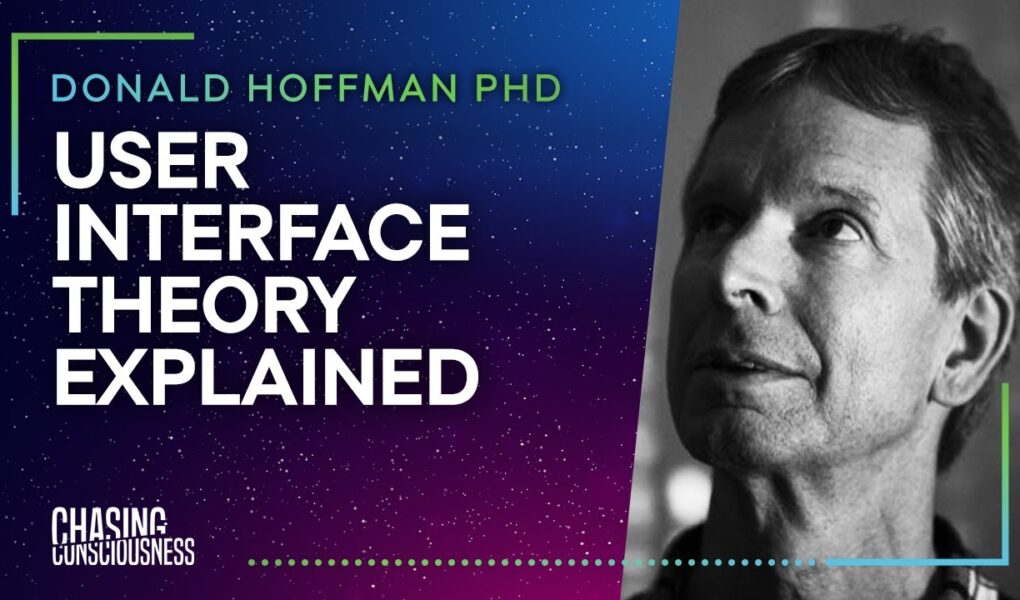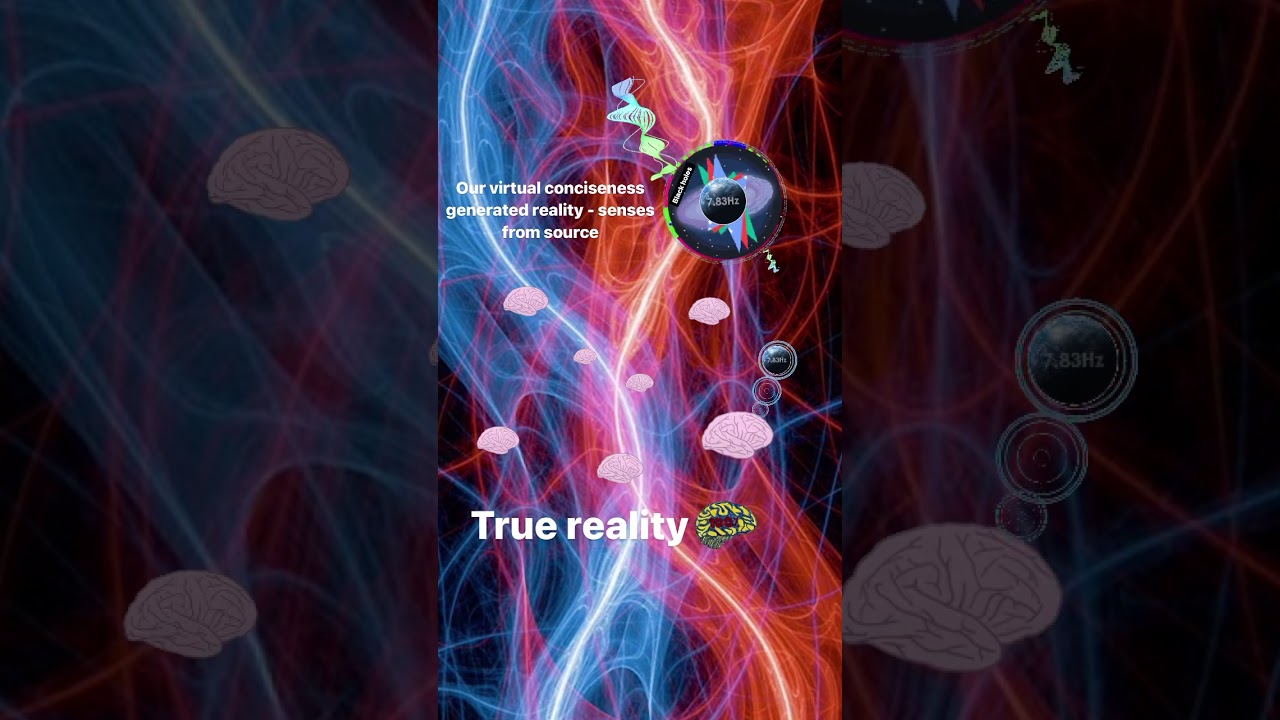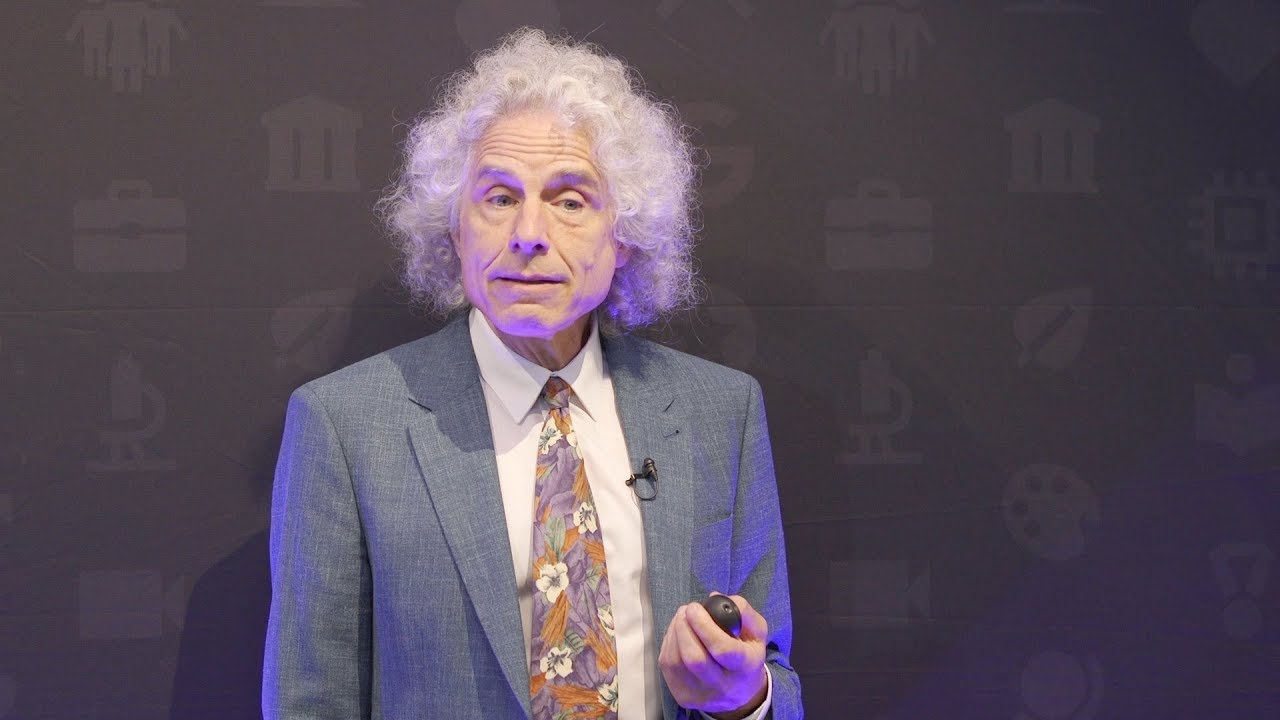Chasing Consciousness Podcast
In this episode we explore a User Interface Theory of reality. Since the invention of the computer virtual reality theories have been gaining in popularity, often to explain some difficulties around the hard problem of consciousness (See Episode #1 with Sue Blackmore to get a full analysis of the problem of how subjective experiences might emerge out of our brain neurology); but also to explain other non-local anomalies coming out of physics and psychology, like ‘quantum entanglement’ or ‘out of body experiences’. Do check the devoted episodes #4 and #28 respectively on those two phenomena for a full breakdown.
As you will hear today the vast majority of cognitive scientists believe consciousness is an emergent phenomena from matter, and that virtual reality theories are science fiction or ‘Woowoo’ and new age. One of this podcasts jobs is to look at some of these Woowoo claims and separate the wheat from the chaff, so the open minded among us can find the threshold beyond which evidence based thinking, no matter how contrary to the consensus can be considered and separated from wishful thinking.
So you can imagine my joy when a hugely respected cognitive scientist and User Interface theorist, who can cut through the polemic and orthodoxy with calm, respectful, evidence based argumentation, agreed to come on the show, the one and only Donald D Hoffman.
Hoffman is a full professor of cognitive science at the University of California, Irvine, where he studies consciousness, visual perception and evolutionary psychology using mathematical models and psychophysical experiments. His research subjects include facial attractiveness, the recognition of shape, the perception of motion and colour, the evolution of perception, and the mind-body problem. So he is perfectly placed to comment on how we interpret reality.
Hoffman has received a Distinguished Scientific Award of the American Psychological Association for early career research into visual perception, the Rustum Roy Award of the Chopra Foundation, and the Troland Research Award of the US National Academy of Sciences. So his recognition in the field is clear.
He is also the author of ‘The Case Against Reality’, the content of which we’ll be focusing on today; ‘Visual Intelligence’, and the co-author with Bruce Bennett and Chetan Prakash of ‘Observer Mechanics’.
What we discuss:
00:00 Intro
05:30 Belief VS questioning
11:20 Seeing the world for survival VS for knowing reality as it truly is
13:30 Competing strategies to maximise ‘fitness’ in the evolutionary sense
15:22 Fitness payoff’s can be calculated as mathematical functions, based on different organisms, states and actions
17:00 Evolutionary Game Theory computer simulations at UC Irvine
21:30 The payoff functions that govern evolution do not contain information about the structure of the world
25:00 The world is NOT as it seems VS The world is NOTHING like it seems
29:30 Space-time cannot be fundamental
32:30 Local and non-contextual realism have been proved false
37:45 A User-Interface network of conscious agents
41:30 A virtual reality computer analogy
43:30 Space and time and physical objects are merely a user interface
49:30 Reductionism is false
53:30 User Interface theory VS Simulation theory
56:30 Panpsychists are fundamentally physicalists
57:30 Making mathematical predictions about conscious agents
59:30 Like space and time maths are invented metrics, so must we start with consciousness metrics
01:03:30 Experiences lead to actions, which affect other agent’s conscious experiences
01:08:00 The notion of truth is deeper than the notion of proof and theory
01:10:00 Consciousness projects space-time so it can explore infinite possibilities
01:13:00 ‘Not that which the eye can see, but that whereby the eye can see’, Kena Upanishad
01:17:30 Is nature written in the language of Maths?
01:27:00 Consciousness is like the living being, and maths is like the bones
01:34:50 Don Hoffman on Max Tegmark’s ‘Everything that is mathematically possible is real’
01:48:00 Different analogies for different eras
References:
Donald Hoffman – ‘The case against reality: Why evolution hid the truth from our eyes’
https://www.amazon.com/Case-Against-Reality-Evolution-Truth/dp/0393254690
John Maynard Smith – Evolutionary Game Theory
https://en.wikipedia.org/wiki/Evolutionary_game_theory
Nima Arkani-Hamed – ‘Space-time is dead’
https://www.youtube.com/watch?v=qTx98PUW6lE
Nima Arkani-Hamed – ‘Reductionism is dead’
https://www.youtube.com/watch?v=Sn0W_mwA7Q0
Local Realism is false
https://www.nature.com/articles/nature15759
Noncontextual realism is false
https://www.nature.com/articles/ncomms12930
Don Hoffman – Objects of Consciousness paper
https://www.researchgate.net/publication/263704213_Objects_of_consciousness
A Markovian Kernal
https://en.wikipedia.org/wiki/Markov_kernel
Gödel’s Incompleteness Theorem
https://www.quantamagazine.org/how-godels-incompleteness-theorems-work-20200714/
Source




1:32:00 for a couple of minutes nails it!
but that's like saying "why does the universe exist?" and answering "there is no problem here, it just exists. it's only a problem to our human minds because we can't know the answer"
i like julian barbour's book THE END OF TIME ❤️ thanks for this awesome diacussion [edit: DISCUSSION*]
We don't need explanations my man, only direct experience
I've read Dr. Hoffman's book and watched a bunch of his talks and interviews, but something about it never adds up to me: For fitness rewards to work at all, there has to be something that one is perceiving at least somewhat accurately. Even if it's somehow a substitution (like seeing an icon that represents a file), it still has to actually represent that file or else you don't get the payoff or even get a punishment or taken out of the game. So what is THAT reality then? Is he saying that it's all a simulation? Who programmed it? Always seems to me that the resources required to simulate an interface reality of the resolution we have (from subatomic particles to the CMB) would be prohibitive, especially when it's all about maximizing fitness rewards. There would have to be this other reality that not only connects to every aspect of this interface reality, down to every subatomic particle and out to the furthest reaches of the observable universe, but also provides fitness rewards and punishments at every single point of connection and presumably has reasons for all its rewards and punishments. (Pretty extreme violation of Occam's razor.)
I'm interested in understanding what he's proposing, but I just can't get it to cohere. It seems that he's using the "user interface" as a metaphor — but a metaphor for WHAT? What is he suggesting is the larger REAL reality that we can't perceive? Doesn't perceiving a potential fitness reward (e.g., a ripe fruit) or fitness hazard (e.g., a high cliff over rocks) in itself count as some kind of perception of reality?
[The red Camaro in Grand Theft Auto can't kill you by running you over in the game. A real Camaro in actual reality can. I would say that's the difference between perceiving a simulated interface reality and perceiving at least the most relevant-to-you aspects of actual reality. Even if our perceptions are not "truth," there's enough truth in them (>0%) to be able to survive and continue.]
If not, what aspects of our interface reality should we regard as fake? If you look in a telescope, are you supposed to think someone simulated what you see through it? Why? Where is this approach supposed to lead to? It always feels as if something's missing in the proposal, so I just can't get my head around it. I have tried many times now.
Hoffman's evolutionary theory based on game theory is bogus. His model concludes that agents looking deeper into the nature of reality had no fitness payoff and died out Ridiculous!. Say you're trying to escape from a saber toothed tiger 30,000 yrs ago. Right, there's no fitness payoff for the quest for Reality immediately. Its a fight for flight situation, but at nite, everybody crowds around the Shaman, and with the use of chants, dances, psychedelics and music, people engage in low fitness endeavors that over the course of thousands of years, forge the societies we have today. Certain cultures such as the ancient Egyptians spent vast resources and time on accommodating the dead. Such endeavors had no DNA fitness payoffs in the short run but had incalculable influences on the course of human evolution. The Hoffman mathematical model based on game theory is an example of "garbage in, garbage out". and so is the Dawkins "selfish gene" theory.
The lungs were compared to a bellows, the heart a pump and now the brain is compared to a computer and the mind to software. See a pattern?
I’m extremely curious about the timing of this theory and outlook now that VR is actually at hand. What are the odds that a theory about consciousness related to interface tech would emerge at the same time that technology emerges in the market? Synchronistic or opportunistic?
Hi. I don't work in science or consider myself a scientist. But I am a curious person and I have listened to a lot of Dr Hoffman these days. There are things that are starting to bug my mind. I am sure I could buy his books and find the answers there – probably I should, but hey, what are youtube comments for?
I understand that it all started as he built, with his team and notably Dr Chetan Prakash, a mathematical model of Darwin's evolution theory based on a few characteristics each model species could have, including the ability to seek fitness payoffs vs the one to accurately (or not) perceive the world.
I still have issues seeing the obviousness in that being the cause of the rest of his work. I can totally get that we should never consider our perceptions as THE objective truth, this was the idea of Plato's cave and so many previous writings. But Space and Time… Isn’t his own model assumed on the veridicity of Space and Time? Can anybody explain what evolution is without assuming Time? I am not saying he’s wrong in seeking answers in Consciousness, on the contrary, I like his following ideas…
Also, if Consciousness is a thing that some species have – or all, at different degrees – why didn’t he made a later evolution model that could include the impact of Consciousness in the evolutionary game?
I know he has arguments against panpsychism, but in a way, I could see how the ability to seek fitness payoffs can be related to some kind of Consciousness.
Maybe I am just not getting that, without Space, Time, there is no such thing as Evolution to consider anymore? But how did we (humans, cats, he seem to continue to believe in the concept of species) became Conscious Agents ? The more I try to understand, the more Hackam's razor is sharpening in my mind…
How about a chat with CHRIS LANAGAN
You do not need math in the decimal system. Learn to use binary in stead, we can all get along.
Just fab, thank you. Yes it seems that colour is our continuity not space time. The red Camino can’t be ‘out there’ because red is created in cortex. Rods n cones vibrate the optic nerve. ❤
Beware of science whose only bases are theorems and simulations. I’ve read some of his papers and to me it’s pretty clear that the ones that lead to the conclusion that reality is fake are based on some pretty hefty simplifications and assumptions.
A few decades ago they purportedly had theorems that said neural networks wouldn’t work for machine learning. The theorems were correct, but they were based on incorrect assumptions.
Dude i want your into song! Lol
Bravo
If you think Donald's desktop theory sounds good, make sure to check out Bernardo Kastrup–including his awesome interview on this channel–talk about the dashboard theory. They're both great and truly helped to show me that we aren't "seeing" reality but are still experiencing something connected to it.
You are correct, Sir! Consciousness is beyond fundamental.
Experience is awareness of what is happening within the flickering dance of electromagnetic energy as it dances on the stage of neurons which direct the flow and limit its possibilities.
Neurons are built from an almost infinite set of dancing molecules which can never be simulated because all is dancing as well with reading frames of DNA code with hormonal, vitamin levels, epigenetic properties. And every neuron has a huge number of synapses which each have their own variable strength of connections..
As Penrose said, brain function is not computable.
PS: Goedel's theorem probably points to the incompleteness of physical models of "mind."
I disagree with electrons not existing when not perceived. It is the opposite!!!. In order to know anything exists, it must interact with matter. Not conscious matter!
It is NOT that it isn't there.
That is utter insanity.
The tree falling in the forest absolutely, unequivocally, makes a noise!!!
Marvellous conversation, Freddie! I watched many interviews with Donald Hoffman. I must say I enjoyed yours a great deal! Your questions probe deeper than many others. You even asked what I thought no one will ever ask – the origin of the metaphor. In a sense, you asked us all to imagine what other metaphors can be applied to Don’s theory. What his answer reveals, in my opinion, is that, indeed, the limit of your world is the limit of your imagination.
Hofmann rocks 😀👍
I keep hearing this guy say that "space and time are doomed" ….space and time are not doomed ….it's humans that are doomed …and whatever Darwinian evolutionary mechanisms helped carry the human race to the present moment …it's gonna be the same mechanisms that will destroy the human race …simply because we couldn't evolve passed the primitive states that this dude seems to be so infatuated with …
….lay off the drugs people …some of you just have no business messing with the human brain …there's something called "the blood brain barrier" …and it is "real" and not to be f cked with …for a good reason.
Love Dr. Hoffman. A lot of these ideas resemble what Castaneda wrote down.
Evolution as a theory is predicated on time. Time is necessary for any process to unfold, and therefore, you cannot use evolutionary theory to explain why time wouldn't be real. A process is, in fact, a change in some object over time. So by definition, if that is invalidated, so is any concept resting on it, including the theory of evolution. Without time, evolutionary theory has no explanatory power, because it explains current observations through gradual change, and without time, change isn't possible.
This dooms most of Hoffman's claims, actually (those that include causality). You can't use a user interface to make inferences about the structure of the computer that enables that user interface. There is no way the existence of physical reality, including electronic circuits, would ever be predictable or even plausible from a standard Windows OS-interface, if you had never seen anything but the inside of the Windows Operating System (heaven forbid.) So if we assume that our consciousness is a user interface, we can't use anything resulting from operations happening or models built using that interface to make predictions about the state of reality – supposing that there is an underlying reality.
No explanation formulated on such a platform would ever say anything about the constraints of the platform itself. If you think you're investigating the processes behind the representation of files and folders, because you're looking at the actual code the platform is running – you can only look at the code which is accessible from the platform, and you can only represent what is going on within the constraints of the system.
Subsequently, even if you discover that a folder can be broken into lines of code – those lines of code are no more real or unreal than the folder. They're simply a different level of reality, and since your investigation of the algorithm that leads to their existence takes place within the OS, there is no priority
To verify this for yourself, just imagine that the contents of your consciousness is replaced by a Windows OS. Unless that OS contains files that depict the existence of the OS the result of electricity moving around circuits (and how would you verify that data?) how would you ever come to any conclusion about the underlying nature of the user interface? What would you be able to say?
47:54 Look, we have zero (0) observations of consciousness, apart from our own. We have tons of behavior of objects we classify as humans, with speech patterns, facial expression, movements, apparent purpose, etc.
But no amount of observations of objects will ever imply the existence of subjective phenomena. It's just a non sequitur. Subjective experience does not follow from objective behavior. This says nothing about the existence of other consciousnesses – i.e., it does not imply solipsism – simply about our ability to infer anything about their existence.
What Hoffman’s new approach of this yet unclear non-reality can mean is that we accepted that we had to be focused on specific sets of ways to view existence but we are restricted as human creatures in believing we exist in only these limited perceived ways of what we believe we see around us. Think of dreams, psychic experiences, people who are diagnosed legally dead yet see other realities. Even those realities may be just as unreal but they show that human consciousness is capable of going “elsewhere” than typical day-to-day pre programmed visual norms.
Do you also chase cocaine, genius?
Consciousness defined in the Mandukya Upanishad (since Dr Hoffman mentioned the Upanishads) – Translation by Purohit Swami & Yeats
He is not knowable by perception, turned inward or outward, nor by both combined. He is neither that which is known, nor that which is not known, nor is He the sum of all that might be known. He cannot be seen, grasped, bargained with. He is undefinable, unthinkable, indescribable.
The only proof of His existence is union with Him. The world disappears in Him. He is the peaceful, the good, the one without a second. This is the fourth condition of the Self — the most worthy of all.
Godel's incompleteness therem is kinda like georg cantor's proof of the transfinite, you are looking at osmething that belongs to the system that generates it in a sequenced kinda way, but also it belongs in truth to a larger set, in truth it doesnt belong to the set that created it due to its p[roperties. that is cantor's proof in a sense. Godel's incompleteness theorem runs into that which is unquantifiable, but its effects so to speak are still known.
For consciousness, see my papers, like "Meaning and Context: A Brief Introduction".
1:05:56, 1:10:55, 1:23:17
This has given me some new revelations. All of this feels intuitive. It resonates w many of my own thoughts about things. I've been obsessed with perception for some time, strongly suspecting that somehow it was the hidden key to everything. One question I have still, is how far does this go. What's the extent of what's possible for something with this user interface. If we construct fitness payoffs, from some source, how much flexibility is there. Is this source hardware like, capable of producing anything, or is it sort of like predefined code. Somehow I suspect that the subconscious has a major role in all this. Need to ponder more.
Tom cruise: i want the truth!
Jack Nicholson: u can't handle the truth!
Donald: listen to him tom, he aint lying.
what dis mafucka talkin bout doh?
The objects of hobbies, what fitness payoffs they offer, curious to know.
Incredible presentation and well structured theory, however I have a couple of issues with the consciousness agent theory. First, is measuring that which is the subject(consciousness)science can only talk about that which is observed ( object). So this theory predicts that the likelihood that this world as we see it is real is zero… so this is not real. But this implies that even our math is also unreal. But this obviously implies that even if we experience REALITY, our math; instrument par excellence to measure, tells us that that REALITY is false…. From here, we can only see unreality….incompleteness… even if what I experience is from the real….In other words one can not measure reality from the unreal… hence the math( instrument of the unreal) that predicts zero probability of seeing the reality is an incapable(but yet the best we have) instrument to speak of the most fundamental… consciousness
"Seeing the truth will make you extinct."
~ Hoffman (2022)
" 'Truth' is a kind of lie without which a certain species could not endure life!"
~ Nietsche (1882)
You gave such great, relevant questions!! Thank you!
New Subscriber!! 😀🙂❤
I've seen many interviews with Hoffman but this one, Freddy Drabble, is by far and away the best! I have found myself shouting at interviewers who really want to show their own educated informations off even if they have NOTHING to do with Hoffman! Egoism to the max. You, however, your questions were on topic and, even better, guided the conversation into depths I've never seen Hoffman talk about. Thank you so very much.! I watched this interview several times over several weeks to get it before I commented and I am so impressed. I'm not a scientist but I am a secular Buddhist and the Heart Sutra is about this very topic and Hoffman is the first scientist I've read and watched who's applying science to consciousness. I get so excited about this I can't sleep sometimes – what a thrill!
People. I'm having a really hard time with this theory. There is so much difficulty I'm having with it.
I can see lots, but I wish I was smart enough to see more. It could be the lacking in background.
This is what Professor Donald Hoffman is trying to say. Gödel’s incompletely theorem proofs divine creator, GOD being as all knowing and omnipotent as it and will ever be, there are always experiences where IT itself cannot experience. Thus it create fractal piece of itself being a soul into a human body to experience the world.
How is his theory different from the religious views about soul, afterlife and God? He is basically explaning there is truth behind…
We are an advanced simulation. For me, the question is whether our consciousness exists or if we're AI.
The only thing fundamental is nothingness. Conceinsness and God must be compatible with nothingness.
Any class at UCI?